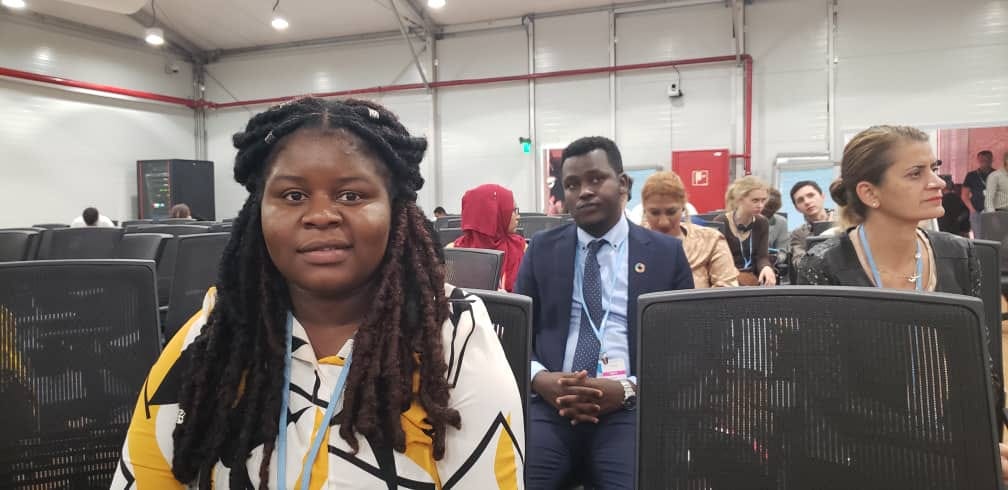Youth demand protection
Youths at COP27 want world leaders to guarantee their safety, claiming that the actions taken now will determine the fate of children and young people.
Sharma El Sheik, Egypt: Youths at COP27 want world leaders to guarantee their safety, claiming that the actions taken now will determine the fate of children and young people.
Youths from Malawi and other countries gathered at a UNICEF side event titled "From the Frontlines: Adaptation to Protect Africa." 'Youth and children.'
According to Paloma Escudero, a member of the UNICEF delegation at COP27, the event was organised to assess the impact of the two weeks of COP27 negotiations on women, children, and young people.
UNICEF Goodwill Ambassador Vanessa Natake of Uganda told the leaders that they must listen to those on the frontlines of the climate crisis and take necessary action.
Children are suffering from the effects of climate change, according to Nakate, but they are not to blame.
“The action we take now will determine the fate of children. We need to stop investing in fossil fuel infrastructure, there is also a need to provide full finance for the communities on the frontlines,” Nakate said.
Nokate and the other young people who spoke at the event joined the conservation movement in calling for more funding for mitigation, adaptation, and a separate fund for loss and damage.
Brenda Mwale, a Malawian youth from Green Girls Platform who is a negotiator at COP27, said in an interview that she is part of the team negotiating the establishment of the loss and damage finance facility.
She observed that Malawi requires more negotiators in negotiating rooms branded by young people to amplify the voice.
Raven, a 12-year-old Libyan, and Kenyan Eric Njuguna also spoke at the event.
Collins Nzovu, Chair of the Africa Group of Negotiators and Zambia's Minister of Green Economy, presented Africa's position, stating that children from various African countries are among the most affected by the impact of climate change due to their vulnerability and low adapting capacity.
“We need to do more for our children to adapt to climate change. Adaptation remains a number one priority for Africa as events such as floods and droughts are becoming frequent and annual occurrences in many countries across the African continent,” he said.
Nzovu assured children that free education is being promoted throughout Africa. He stated that Africa's position has been to develop actionable adaptation policies and to secure the necessary financing for the implementation of climate policies that can address the unique needs of Africa's youth.
“There is also a need for a paradigm shift and to involve the youths in policy formulation since this is the generation, we are planning for beyond ourselves today,” Nzovu said.
Eisenhower Mkaka, Minister of Environment and Climate Change, stated that as a policymaker, his interest is not only to ensure that youths have a voice, but that their voice is heard.
“It is important to have Malawian youths at COP27 because this means that their interests, their perspectives will be incorporated into the final position which takes into consideration all the needs and interests of different groups,” he said.
Children and youths constitute over 50% of Africa’s population.





